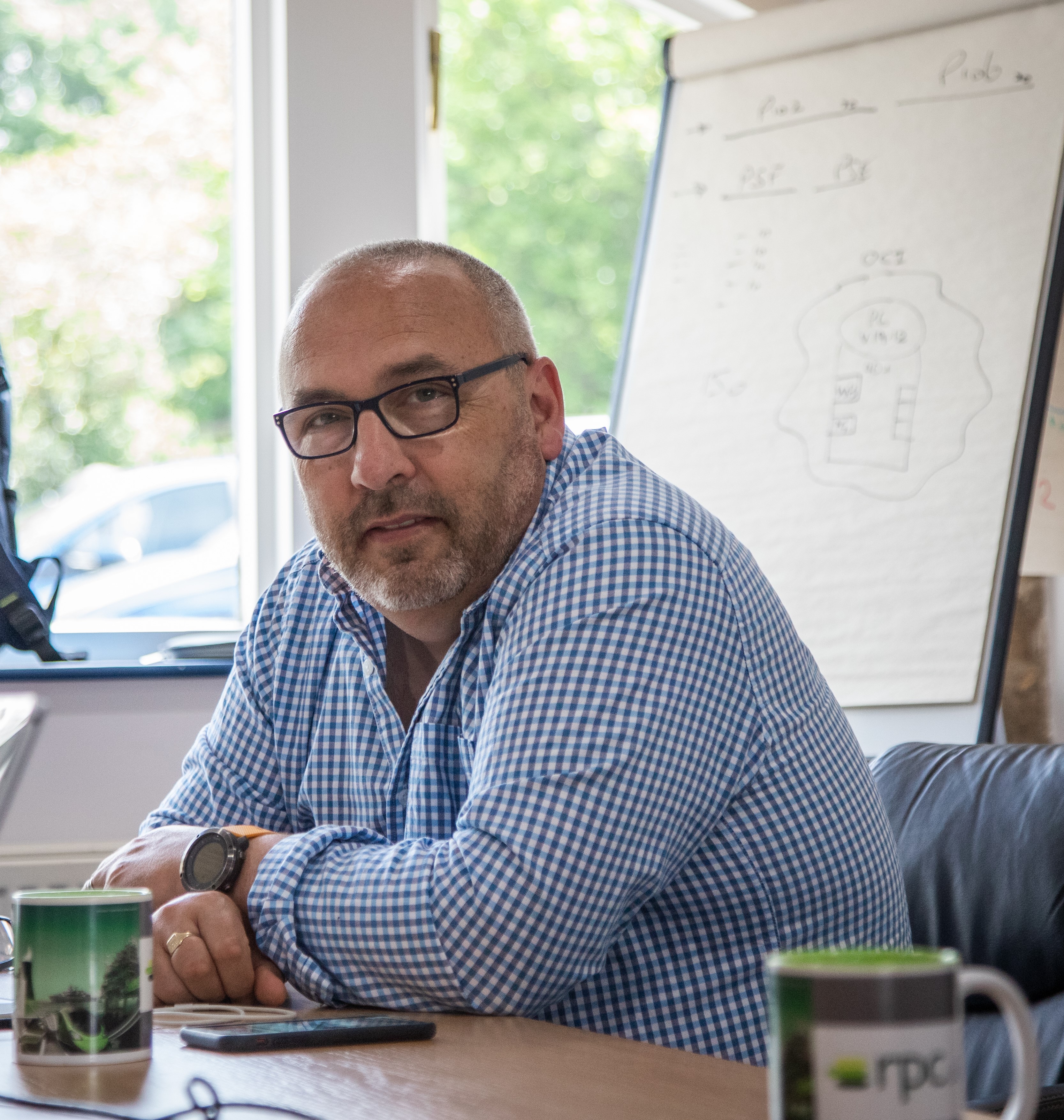Building a new business model for collaborative success

When a long-standing member of a team moves on, it challenges the status quo, disrupts the team dynamic and can lead to feelings of instability and uncertainty. Barca would be nothing without Messi, the fans feared. Arsenal without Arsene? Unthinkable! But change can be a catalyst for creative thinking, and when RPC’s Managing Director, Keith Hogben, decided it was time to retire, it was the prompt for the company to take stock and to rethink both its structure and ownership model.
With not just one, but a couple of the key shareholders retiring in the next few years, RPC needed to structure the ownership of the company for the future. Acquisition was considered, but too many of the team had been through acquisition before and seen first-hand how quickly it changes a company’s spirit. “I’ve experienced the company I was working for being sold,” Consultant Russ Dobson reflects, “and it had a really negative effect on the employees.” I’ve been through it myself, where a nimble, sparky entrepreneurial company got swallowed up by a large corporate and all that agility and innovation was slowed down by process and bureaucracy.
At RPC, we pride ourselves on the strong sense of family within our team and in empowering employees and supporting them to make decisions that are right for the company and for their personal growth. As a board, we felt sure as soon as we first discussed it that an Employee Ownership Trust was the answer for us, giving RPC the ability to expand on its own terms and at our own pace — and, crucially, to reward the entire team for their contributions to our success.
John Lewis is the one you’ll have heard of. They led the way with giving each employee part-ownership of the company and a share of the profits back in the 1920s. It’s still the UK’s largest and probably best-known employee-owned business. The UK Government introduced the concept of the Employee Ownership Trust (EOT) in 2014 to try to encourage more companies to follow the same model and it’s a fast-growing scheme, including some big names, such as Arup, Mott MacDonald, Aardman Animations and Richer Sounds.
“All companies talk about valuing staff,” notes RPC’s Alex Chewins, “but it’s a rare thing indeed for a company to put words into tangible value, which is what RPC has achieved with its 100% EOT.” Consultant, Fionn Wenman agrees: “The fact that it is entirely EOT rather than partially EOT indicates equality amongst employees, which promotes teamwork and a willingness to help each other — values that are already well practised at RPC.”
Government research suggests that employee-owned companies are good for business, for the employees and for the wider economy too. EOT businesses tend to be more resilient, more profitable and productive, and faster growing, largely because their employees are more engaged and committed. “Moving to an employee ownership trust means that for employees, the quality of our work has a direct impact on us,” thinks Fionn. “As we work harder, the company does better, which will eventually be reflected for us in dividends. This encourages us to remain invested in the long-term health of the company, promoting low staff turnover and motivated employees.”
Because the employee ownership model is so well aligned with the established ethos of RPC, it’s been an easy and welcome transition to make. Many companies move to an EOT in order to cultivate a culture of high performance, loyalty and longevity in their staff, but we are fortunate that we already had this in place and can just build on this with renewed enthusiasm, fostering even greater engagement, innovation, loyalty, collaboration and — ultimately — continued success within our team.
For me, RPC is all about the people and as the incoming Managing Director following Keith’s departure, I’m really proud that we have made this move, giving every single member of our valued team a real stake in the future success of the business. To continue the football analogy, I don’t know whether that makes me Bob Paisley, taking over following Bill Shankly’s long reign at Liverpool, but I do know that we have a top-class team on the pitch and I’m excited to be going with them into the coming season.
You may also be interested in:


0 comments
Log in to post a comment, or create an account if you don't have one already.